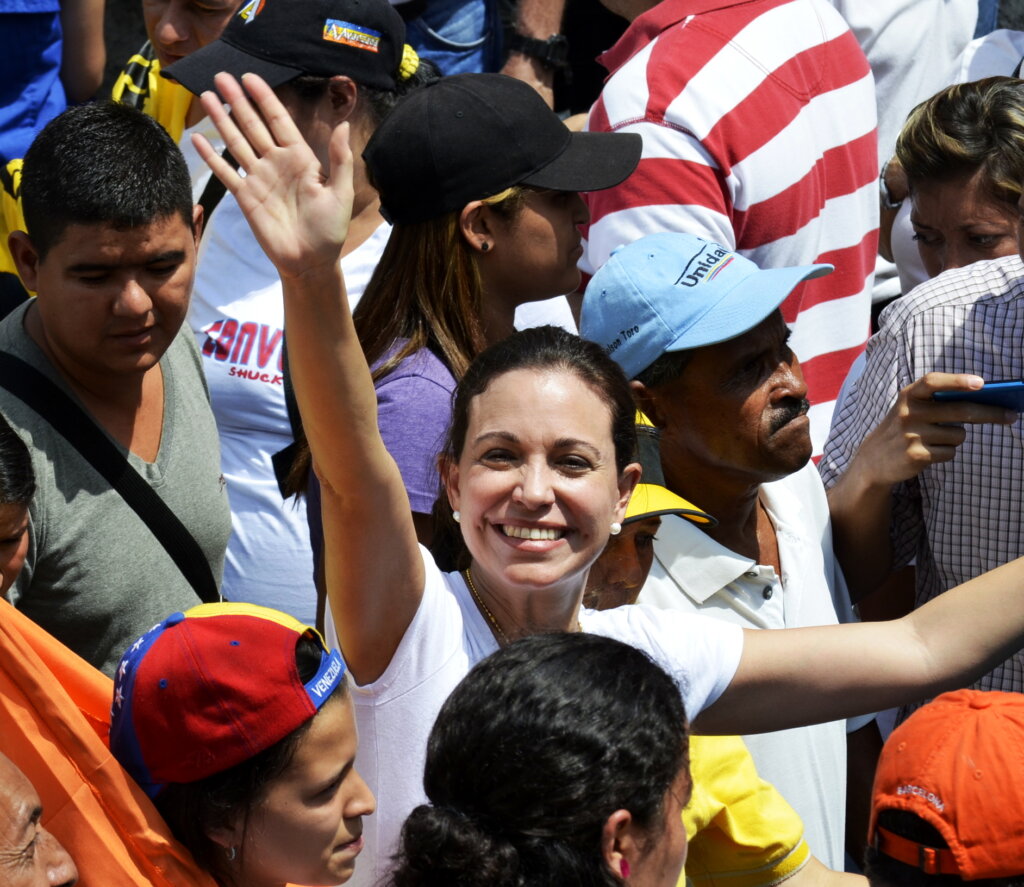From the outside looking in, it is hard not to feel gloomy about the situation in Venezuela.
Six weeks have passed since the country held its 2024 presidential elections. In that time, the Venezuelan government led by Nicolás Maduro, has claimed victory, but no data fully evidencing this result has ever been shared.
Instead, Venezuela finds itself in a context where Maduro has claimed victory not only without verifiable evidence, but against significant data suggesting a clear victory for the opposition. Within this backdrop, Maduro and his allies have led a fierce crackdown against dissenting voices.
To date, protests against Maduro’s declaration of victory have led to 27 deaths and 2,400 political imprisonments. Just this week, Edmundo González, the opposition’s candidate in the recent elections, claimed asylum in Spain after an arrest warrant had been issued for him by Maduro.
Throughout all of this, one woman remains remarkably undaunted. It is difficult to explain the pressure María Corina Machado is currently under. Two weeks ago her lawyer was detained in an attempt to get to her. This week, six of her closest political advisers find themselves surrounded by Venezuelan state forces whilst they take refuge in Caracas’s Argentinian Embassy.

Machado has been in hiding for over a month. This past week she acknowledged to journalists that her life is at risk and that Venezuelan forces are imprisoning people they think know her whereabouts. Somehow, despite all this, Machado continues to insist that it is her duty to stay in Venezuela.
For anyone familiar with Machado, they will know that this level of defiance has become something of a trademark for her. Making her name in the early 2000’s protesting the corruption and oppression of Hugo Chavez’s tenure, Machado became an instant target of the Chavist regime. In the twenty years that Machado has been politically active she has faced numerous charges of treason and escaped multiple attempts at prosecution from the governments of Chavez and then Maduro.
Through persistent persecution, Machado has faced down countless acts of violence against her in public and remained committed to staying in Venezuela to fight for the causes she believes in. This has helped her to earn the sobriquet: ‘la dama de acero’ (the lady of steel).
This all raises the question of what motivates Machado’s steadfastness. For people that know her well, the answer is simple: her compassion. Machado cut her political teeth campaigning in Venezuela’s slums and has been a first hand witness to the cruel depths to which the Chavist regime is willing to plunge in order to maintain power.
Being compassionate is not only about empathising with the struggles and injustices faced by others. It is about acting to help change these realities. In its best examples, compassion drives individuals to sacrifice some of their own welfare in order to help uplift others. The extent to which Machado has done this in Venezuela is breathtaking.
Just months before the July election, Machado was disqualified by Maduro’s regime from running despite winning the election to be the official candidate of the opposition. What did she do in response? She helped to find a replacement candidate in Edmundo González and campaigned vigorously for him.
Now, González has been forced to flee and Machado, as the primary figurehead of the opposition, is being hunted down. Her allies are being picked off one by one, imprisoned and questioned for information on her. And yet, she does not waiver.
Machado is the ultimate example of compassion. Across a twenty year political career she has sacrificed everything in fighting against tyranny and autocracy in Venezuela. Her refusal to prioritise her own safety and flee Venezuela is something which nobody could rightly expect of her. And yet, she does it anyway because she deeply believes that Venezuela is suffering at the hands of Maduro’s dictatorship.
This level of courage and compassion for her fellow Venezuelans is extraordinary. It explains why Machado has been nominated for the 2025 Nobel Peace Prize as well as why she is so adored across large swathes of Venezuela.
Things may look gloomy from the outside but as long as there are people like Machado still fighting on the inside, there is hope for change in Venezuela.
Lewis Mclellan is a History and Politics student at the London School of Economics (LSE) in the United Kingdom.
